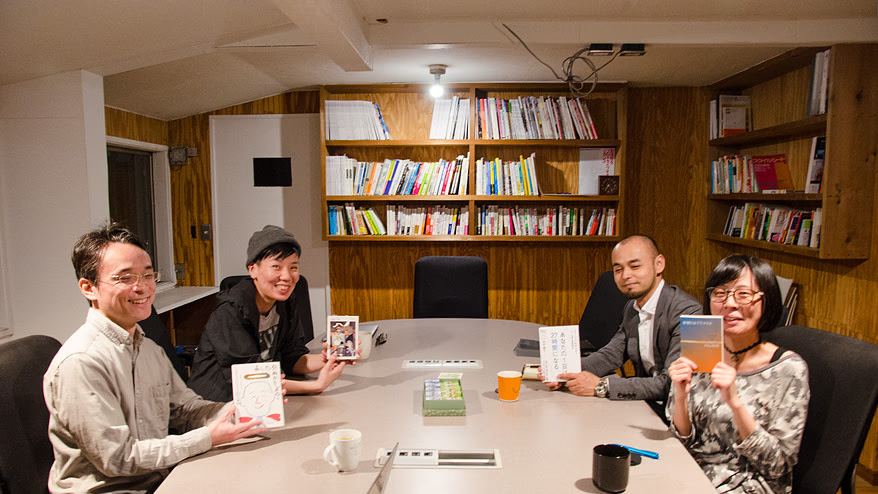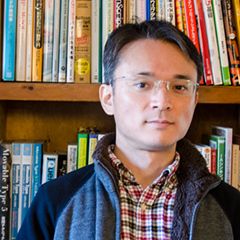今回のテーマは、梅雨にちなんで「家にこもって読みたい本」。
近頃は"読書の梅雨"なんて言葉も目にします。
雨が降って外にでるのも億劫、ネットサーフィンにも少し飽きた、というときには、本を手にとって新しい学びを得る、その世界に浸る、沈みがちな気分を吹き飛ばす、というのも良いのではないでしょうか。
果たしてどんな本が集まるのか。
今回の参加者は、私(村上)、菊永というレギュラーメンバーに加え、コーディングファクトリー部・田中、プロデュース部・和田といったニューフェイスも参戦。
差し入れにもらった神山土産の和菓子を食べながら、読書会スタートです。
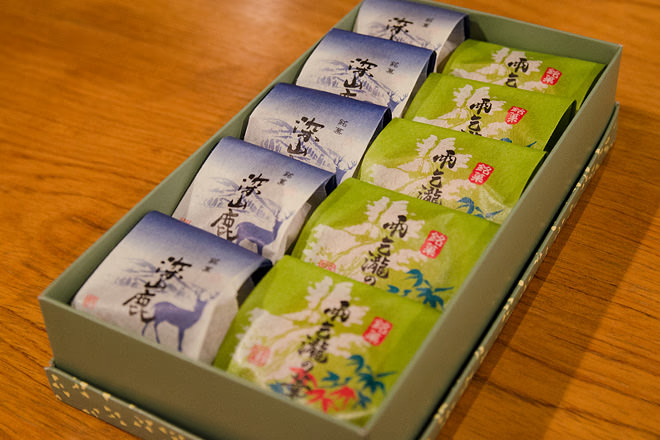
前日まで徳島県・神山町に行っていた中庭からの土産。神領商店街にある「宮本製菓」さんの和菓子。「深山鹿」「雨乞瀧の華」という、地元にまつわるネーミング。
発表タイム
40分間の読書タイムを終えたら、ひとり5分間でその本を紹介します。
-
「生」って意外と残り少ない…。後悔しないための「死」への準備
ひすいこたろう『あした死ぬかもよ?』(紹介者:村上 伊左夫) -
不気味な夜と謎とサラサーテの盤
内田百閒『内田百閒 (ちくま日本文学 1)』(紹介者:和田 亜也) -
時間がたりない人の時間のつくり方
木村 聡子『あなたの1日は27時間になる。――「自分だけの3時間」を作る人生・仕事の超整理法』(紹介者:菊永 真介) -
「歳なんか、言ってみればほくろの数みたいなもんだ」大切なことは他にある
村山 由佳『夜明けまで1マイル―Somebody loves you』(紹介者:田中夏海)
「生」って意外と残り少ない…。後悔しないための「死」への準備
ひすいこたろう『あした死ぬかもよ?』(紹介者:村上 伊左夫)
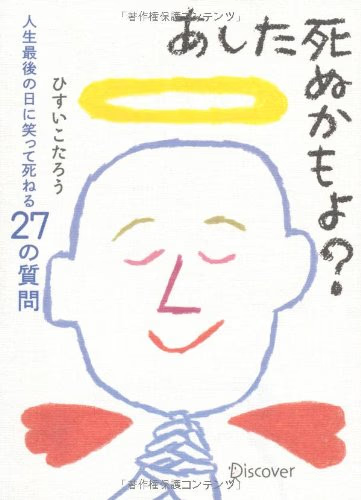
ひすいこたろう『あした死ぬかもよ?』ディスカヴァー・トゥエンティワン (2012/12/26) ( Amazon )
-
 村上
村上 -
この本は以前、チェックチームの舟山さんが読書会に持ってきてくれた本です。「家にこもって…」というテーマなので、「死」についてのシリアスな本もよいかなと。まだ途中までしか読んでいませんが、ひとことで言うと「自分に発破を掛ける本」だと思います。
「生は意外と残り少ないんだ、いまのままだと後悔するぞ」と。
自分がいずれ死ぬということに気づいた人は満足した人生を送り、そうでない人は、悔いを残してしまう。当たり前のことだと頭でわかっていても、自分ごととして本当に理解しているかというと、そうではないんですよね。この本では冒頭で、読者に自分が死ぬところを想像させます。
ベッドに横たわっていて、だんだん意識が遠くなっていって・・・という風に。他にも「5分間考えてからページをめくってください」「声に出してみてください」など、身体を使って想像させる箇所がたくさんあります。さすがに「泣き叫んで」は、ここじゃできませんが(笑)。
考えるだけでなく、実際に行動して想像させる仕掛けが面白いんです。雨の日にこういう本を読んで、自分と向き合うのもありかなと思います。
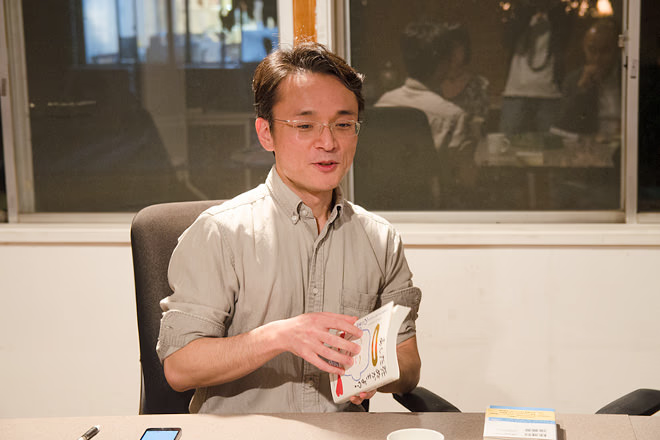
図書委員長で読書会主催者・村上
-
 菊永
菊永 -
小学生のとき先生に、「あなた達はあと四万何日かしか生きられない」と言われて。
-
 村上
村上 -
それ、私も覚えがあります。この本にも「両親とあと何日会えるか」計算している箇所があって、いろいろ差し引いていくと、僕の場合2ヶ月もないとか。
-
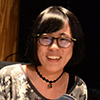 田中
田中 -
子どもの頃、新聞で読んだ「地球最後の日」という詩のなかに、“地球最後の日に私たちは 炊飯器のタイマーを夜7時にセットするだろう”という節があって。最後の日って突然くるし、死ぬのも突然なんだろうなと。
「やばい何も準備できてない!」と思って図書館で「死とは何か」みたいな分厚い本を読んだことがあります。
「死」は抗えない恐怖だから、人間は普段死を忘れている。他のことなら経験者から話を聞けるけど、死んだことがある人はいないから、それがどういうことかわからない。だからいったん忘れておこう、という冒頭の章だけ読んで挫折しました。
一同 ええ?!
-
 田中
田中 -
そのあと、蚊になって、スプレーでプシュッとされて毒が回って死ぬ夢を見たんです。腕から感覚がざあってなくなって、パンっ!てはじけていなくなる夢をみて、「これか!」って。
というのを、今の話を聞いて思い出しました。
不気味な夜と謎とサラサーテの盤
内田百閒『内田百閒 (ちくま日本文学 1)』(紹介者:和田 亜也)
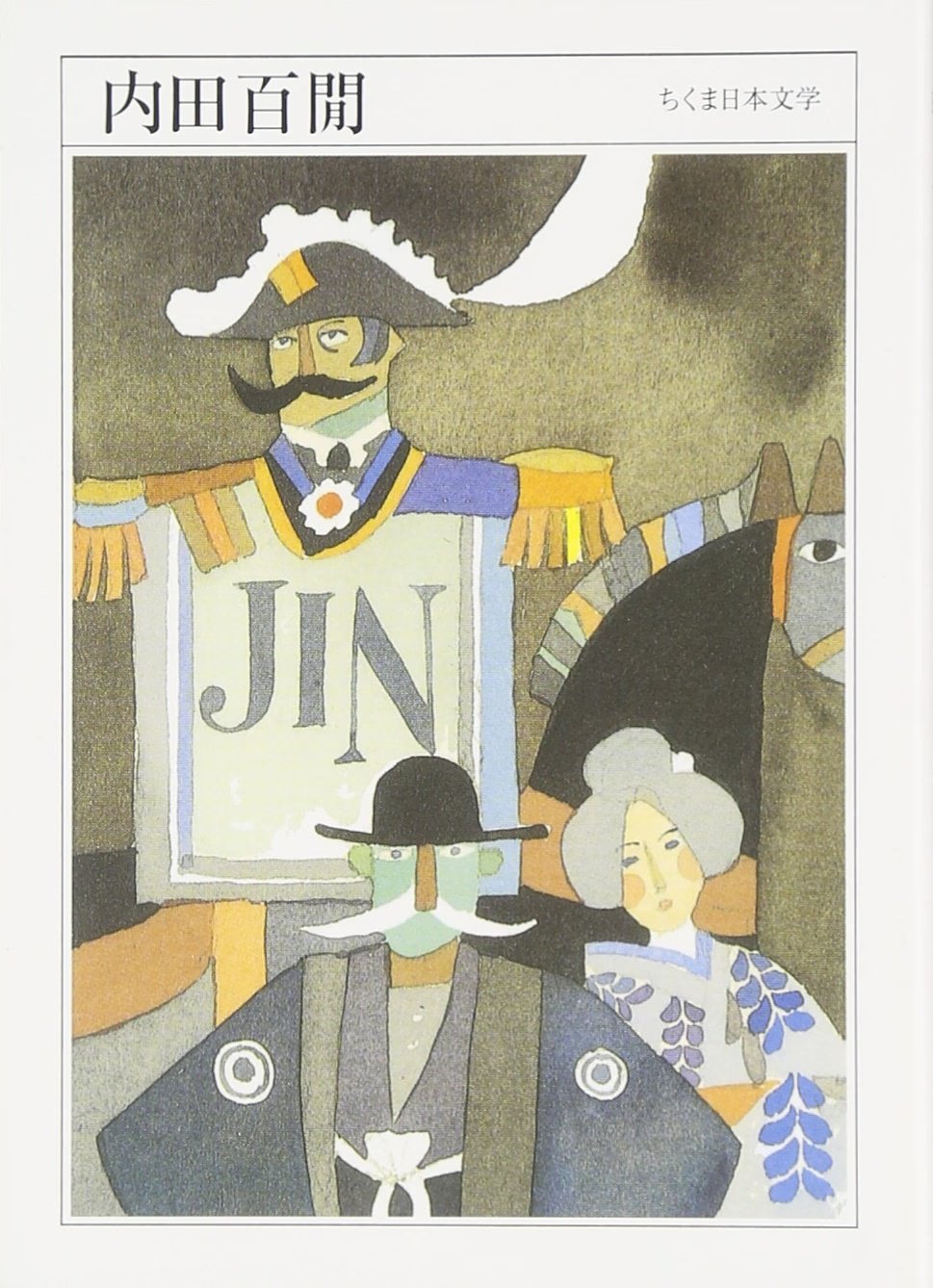
内田百閒『内田百閒 (ちくま日本文学 1)』出版社: 筑摩書房 (2007/11/20) ( Amazon )
-
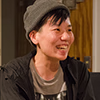 和田
和田 -
「梅雨に家にこもって」ということで、暗い、ジメッとしたイメージがぴったりだと思い、この短編集を選んでみました。
「ツィゴイネルワイゼン」(鈴木清順監督・1980年公開)という映画が好きなんですが、その原作になった『サラサーテの盤』という短編が収録されています。
主人公には亡くなった友人がいて、その妻が「夫の遺品を返してください」と、何度も同じ時間に現れるという不気味なお話です。
求める遺品は毎回ちがいますが、その中に、映画のタイトルにもなっている、サラサーテ作曲「ツィゴイネルワイゼン」のレコードがあって。曲をかけると途中に何か声が入っていて、謎が深まっていくんです。現実なのか夢なのか、友人の妻は生きているのか死んでいるのかも明らかではなく、いわゆるホラーとは違った、心理的にゾッとするような、そういう怖さがあります。
他にも好きな話があって、例えば「件(くだん)」。
「件」というのは、人間の顔と牛の体を持つ想像上の動物(?)です。
その「件」になってしまった男の話が、彼の目線で語られます。「件」は予言をするという伝説があって、ある日村の人が「件が今から予言するぞー」と集まってくるんですが、本人は「予言なんて何もねーし!どうしよう」と(笑)。怪談とは少しちがいますが、不思議な感覚になる話が多いです。
興味があったら、ぜひ読んでみてください。
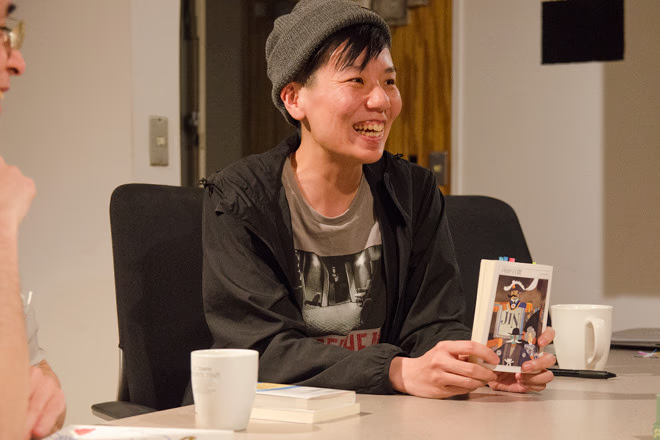
ニューフェイスのプロデュース部・和田
-
 田中
田中 -
「ツィゴイネルワイゼン」って、口にしてみたくなる響きですよね(笑)
-
 和田
和田 -
映画の「ツィゴイネルワイゼン」もすごく面白いですよ。
主演の原田芳雄がめちゃくちゃかっこいいです!
-
 中庭
中庭 -
あった。これかな。(「ツィゴイネルワイゼン」の予告ムービーを再生)
-
 和田
和田 -
これですこれです!
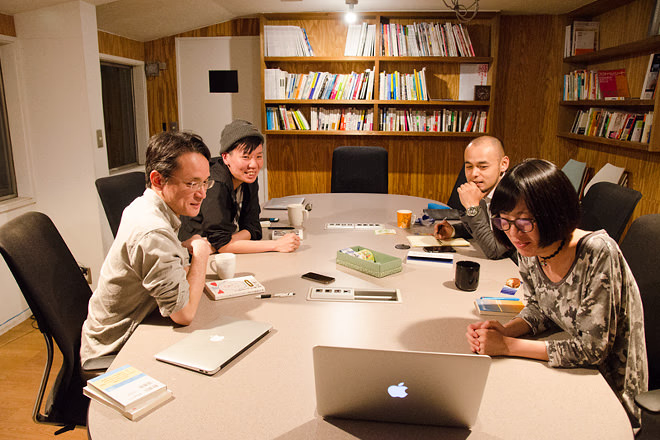
-
 菊永
菊永 -
こわ。なんかゾンビみたいな人がいる。
-
 和田
和田 -
いえこれ普通の生きてる人です。
一同 (笑)
-
 和田
和田 -
今流れてる曲が、「ツィゴイネルワイゼン」です。
-
 中庭
中庭 -
演出が派手というか。ポップな色彩ですよね〜
-
 和田
和田 -
アバンギャルドな演出がたくさん出てきます。「ツィゴイネルワイゼン」は鈴木清順監督の「浪漫三部作」の一作目で、ほかは「陽炎座」と「夢二」です。「夢二」はまだ見たことないんですけど、「陽炎座」も面白いですよ。
鈴木清順監督「ツィゴイネルワイゼン」予告編
時間がたりない人の時間のつくり方
木村 聡子『あなたの1日は27時間になる。――「自分だけの3時間」を作る人生・仕事の超整理法』(紹介者:菊永 真介)
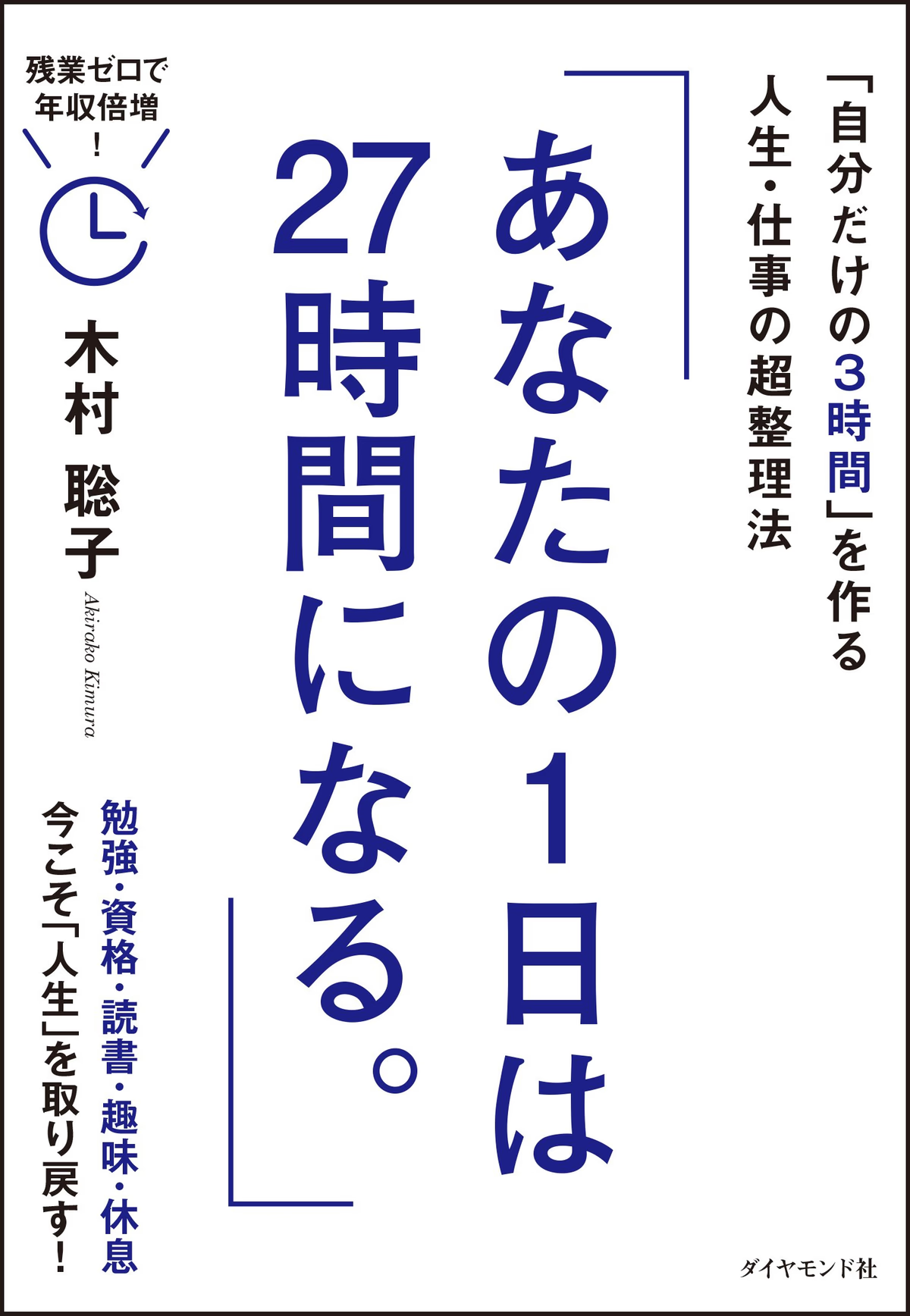
木村 聡子『あなたの1日は27時間になる。――「自分だけの3時間」を作る人生・仕事の超整理法』出版社: ダイヤモンド社 (2015/12/11)( Amazon )
-
 菊永
菊永 -
「こもって読みたい本」は他にもありましたが、"1日が3時間増える"というタイトルに惹かれて、この本を真っ先に読むことにしました。
なぜかと言うと、最近やりたいことがすごく多いのに、時間がなくて。これを読めば時間のつくり方が分かるかな、と思ったんです。
著者は、税理士事務所を開業している女性です。
朝6時に起きて夜1時に寝る、会社と家を往復するだけの日々の中で、あるとき決意します。
「自分の時間をつくろう」と。15時までに仕事を終わらせて、18時までの3時間を自分の趣味や勉強のために使う。その6年間試行錯誤した時間の作り方のノウハウを、この本では教えてくれます。
ポイントは3つ。
- 1日の過ごし方を見直す
- 仕事の段取りを徹底する
- 仕事環境の効率的にする、仕事の効率アップ
難しいことじゃなく、アタリマエのことが具体的に書いてあります。
たとえば、残業するといくらでも時間があると錯覚しやすいけど、朝10分でもいいから早く出社して(前業)、その分はやく帰る工夫をする。仕事は100%完璧にする前に、6〜8割の段階でまわりにボールを投げると相手にも余裕ができて好循環になる。
そういうノウハウがぎゅっと詰まっています。最初から3時間つくるのは大変だと思うんですけど、たとえば帰る前の30分でも1時間でも、勉強の時間にできたらすごくいいですよね。
さっそく次回の読書会までに、実践したいと思います。
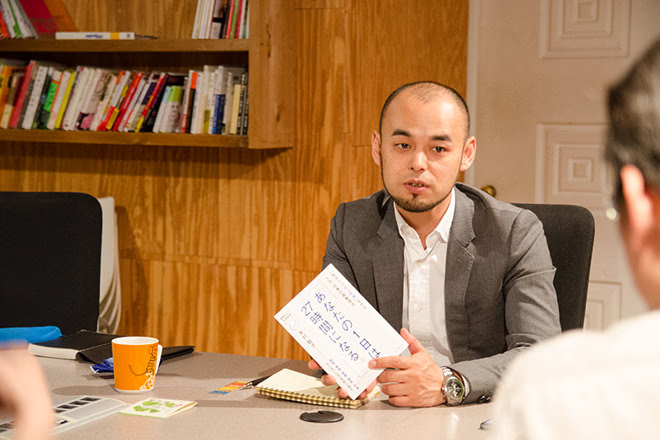
読書会レギュラーメンバーのマーケティング事業部・菊永
-
 菊永
菊永 -
コーディングファクトリーの人って朝早いですよね。
-
 田中
田中 -
そうですね。そして夜も遅い(笑)でも確かに、朝のほうが気分がいいですよね。
始業の時点で、もう1ページ完成しちゃった、とか気持ちいい(笑)
-
 菊永
菊永 -
それを習慣化したいですよね。サラリーマンは物を探すために年間150時間も費やしている、そうならないようにするための一例としてフォルダの数は4つでいいとか、そんなことが書かれています。
-
 田中
田中 -
わたし、軽く50倍位はあるんですけど。
-
 中庭
中庭 -
一番試してみようと思ったことはなんですか?
-
 菊永
菊永 -
仕事は6〜8割の段階で出す、っていうことですね。
でも、コーディングが6〜8割の状態でチェックに出されたら、チェックチーム泣くよね。
-
 村上
村上 -
それやられたら、突き返します(笑)
けれど、大枠を先にチェックにだす場合とかは、これに当てはまるかなぁと。
「歳なんか、言ってみればほくろの数みたいなもんだ」大切なことは他にある
村山 由佳『夜明けまで1マイル―Somebody loves you』(紹介者:田中夏海)
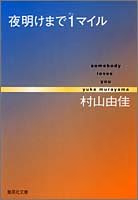
村山 由佳『夜明けまで1マイル―Somebody loves you』出版社: 集英社 (2005/1/20) ( Amazon )
-
 田中
田中 -
本当は「ガラスの仮面」を持ってこようと思ったんですが、忘れました(苦笑)。
この本は、高校生の頃、同じ演劇部の友達がすごく好きだった本です。当時はあらすじだけ聞いて、「へぇ、いい話っぽいねー」と言っただけでしたが、さっき会社の本棚で見つけて初めて読みました。
大学生の男の子が、昔からの友人たちとバンドしつつ、大学の先生と付き合いつつ、いい感じに青春を謳歌している話です。私も昔バンドをやってて、自堕落な生活をしていて…。主人公と自分が不思議なほどリンクするので、もっと早く読んでおけばよかったなぁと思いました。
主人公が付き合う大学の先生は既婚者で、つまり不倫なんです。女友達に「歳も知らないで付き合ってるの?」って言われて「わかってねーなー」と返すんですが、
「相手が何を喜ぶか、本当に知らなければいけないのは、そういうことなんじゃないのか。
それに比べたら歳なんか、言ってみればほくろの数みたいなもんだ」と言っていて、なるほどー!!と思いました。
結構長いこと彼氏がいたりいなかったりで、そういうことがちょっと良くわからなくなってたんですが、これをみて、"あぁ、そうそう。ちゃんと書いてくれてる。"と思いました(笑)
以上です!
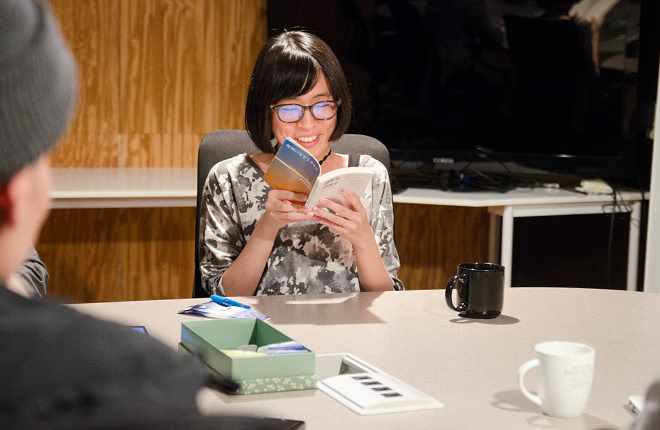
-
 村上
村上 -
村山由佳って、名前はずっと前から知ってましたが、女性向けなのかなーって思ってました。
-
 田中
田中 -
村山由佳さん自身は、女の人に人気があるみたいですね。柔らかい文体で読みやすいです。普段のわたしは、青春小説というか若い人がでてくるものを、あまり読まなくて。30代で働いてないおじさんが出てくるような、そういう小説をよく読んでます。
まとめ
今回は、初参加の田中と和田を迎え、にぎやかな会になりました。
「家にこもって読みたい本」というテーマでしたが、死について考える本だったり、ぞくっと不気味な話だったり、時間だったり恋愛だったりと、選ばれた本もさまざま。発表自体は1時間程度ですが、さまざまな「こもれる本」に出会えたひとときでした。
みなさんも雨の日は家にこもって「読書の梅雨」を楽しんでみたらいかがでしょうか?
